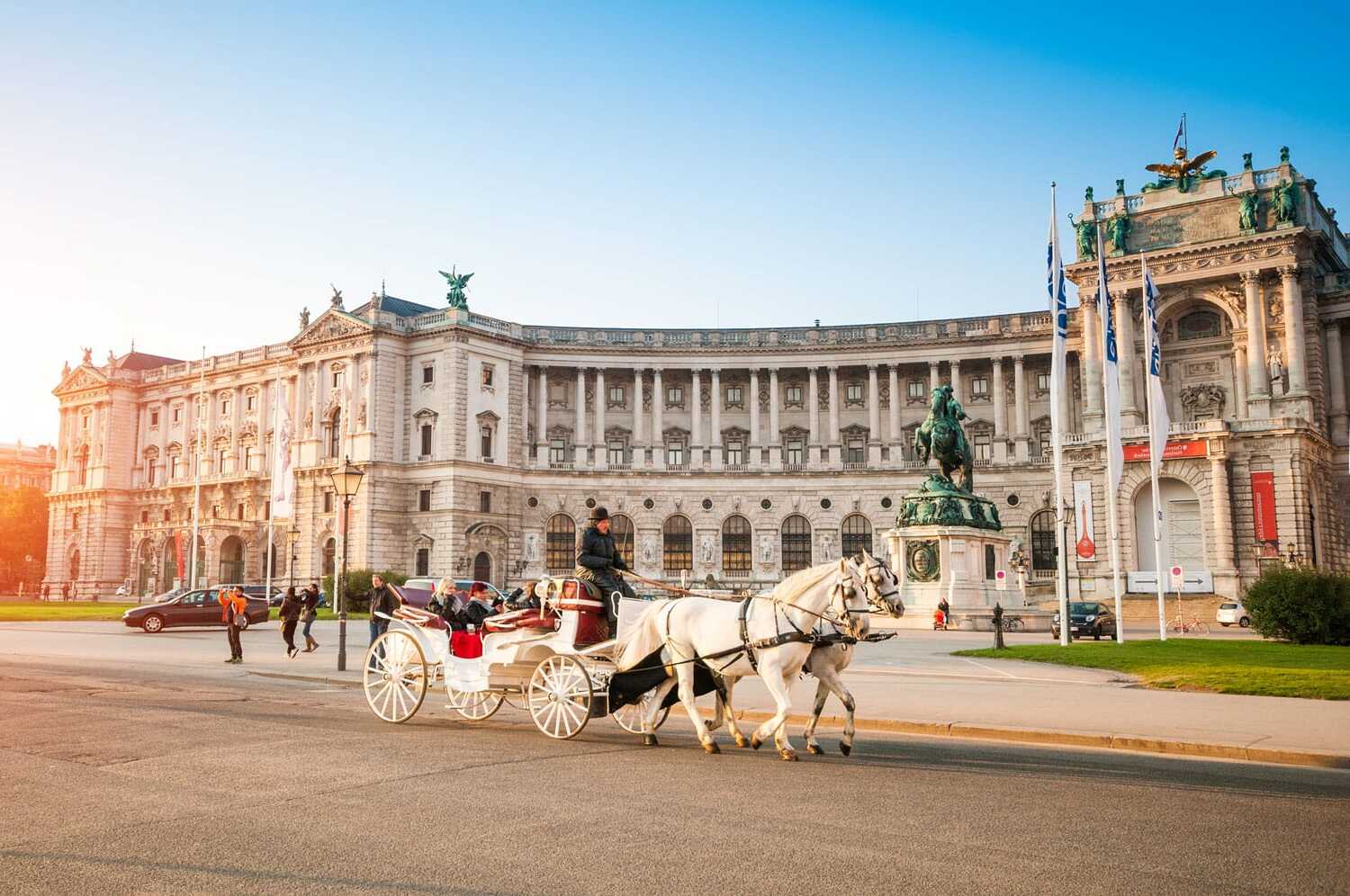
Austria, nestled in the heart of Europe, is a country rich with history, art, and traditions that have shaped not only its own culture but also had a profound impact on the wider world. From the classical music that echoes through the ornate concert halls of Vienna to the alpine traditions that thrive in its picturesque villages, Austrian culture is a vibrant tapestry of the old and new. Austrian culture is known for its contribution to the arts, its historic architecture, and its world-renowned culinary delights. Whether you're drawn to the melodies of Mozart and Strauss or the taste of Sachertorte and Wiener Schnitzel, Austria offers a unique blend of experiences that continue to captivate visitors and locals alike. In this introduction, we'll embark on a journey through 23 fascinating facts about Austrian culture, each revealing a piece of the puzzle that makes this country so enchanting.
Understanding Austrian Culture
Austrian culture is rich and varied, shaped by its history, geography, and position in Europe. It's a blend of traditional customs and modern innovation, where classical music meets contemporary art. Here, we'll dive into some fascinating facts about this vibrant culture.
-
Music is at the heart of Austrian culture. Austria is renowned worldwide for its classical music heritage, being the birthplace of famous composers like Mozart, Beethoven, and Strauss. Vienna, often referred to as the "City of Music," hosts over 15,000 classical music events each year.
-
Coffee house culture is a UNESCO heritage. Austrian coffee houses are more than just places to enjoy a cup of coffee; they are cultural institutions where people come to read, chat, and savor the atmosphere. This tradition is so significant that UNESCO listed it as an Intangible Cultural Heritage in 2011.
-
Christmas markets light up cities. From late November, Christmas markets, known locally as Christkindlmärkte, pop up across Austria. These markets are a centuries-old tradition, offering handmade crafts, warm drinks, and a festive atmosphere.
Austrian Cuisine: A Blend of Flavors
Austrian cuisine reflects the country's history and geographical diversity, with influences from Central Europe and the former Austro-Hungarian Empire.
-
Wiener Schnitzel is a national dish. This breaded and fried veal cutlet is perhaps the most famous Austrian dish, enjoyed in restaurants and homes throughout the country.
-
Desserts are a serious affair. Austria takes its sweets seriously, with iconic desserts like Sachertorte, a dense chocolate cake with apricot jam, and Apfelstrudel, a pastry filled with apples, cinnamon, and raisins.
-
Pumpkin seed oil is a culinary treasure. Produced mainly in the Styria region, this dark, nutty oil is used to dress salads and soups, adding a unique flavor to traditional Austrian dishes.
Festivals and Traditions
Austria's calendar is packed with festivals and traditions that celebrate its history, arts, and community spirit.
-
The Salzburg Festival is a cultural highlight. Held every summer, this festival features opera, concerts, and drama, attracting performers and audiences from around the world.
-
Fasching is Austria's carnival season. Running from Epiphany (January 6) to Ash Wednesday, Fasching is marked by parades, masquerade balls, and humorous performances in towns and cities across Austria.
-
Easter markets are a springtime joy. Similar to Christmas markets, Easter markets sell decorated eggs, regional foods, and crafts, marking the beginning of spring with vibrant colors and festive activities.
Art and Architecture
Austrian art and architecture are a testament to the country's rich cultural heritage and innovative spirit.
-
Baroque architecture dominates. Cities like Salzburg and Vienna are famed for their Baroque buildings, characterized by elaborate decorations, bold shapes, and a sense of movement and drama.
-
The Vienna Secession was a pivotal art movement. Founded in 1897 by artists like Gustav Klimt, this movement sought to break away from traditional styles, leading to the creation of unique works that combined natural forms with geometric patterns.
-
Street art is thriving in Vienna. In recent years, Vienna has become a hotspot for street art, with districts like the Donaukanal showcasing works by local and international artists.
Language and Literature
Language plays a crucial role in Austrian culture, with a rich literary tradition and unique dialects that vary significantly across regions.
-
German is the official language. However, Austrian German differs from the German spoken in Germany, with its own words, expressions, and accents.
-
Dialects are widely spoken. In rural areas, many Austrians speak in dialects that can be difficult for outsiders, including Germans, to understand.
-
Austria has a Nobel Prize-winning literary tradition. Austrian authors like Elfriede Jelinek and Peter Handke have been awarded the Nobel Prize in Literature, reflecting the country's contribution to global literature.
Outdoor Activities and Sports
Austrians have a deep connection with nature, which is reflected in their love for outdoor activities and sports.
-
Skiing is a national pastime. With the Alps covering a significant part of the country, skiing and snowboarding are popular winter sports, with Austria hosting numerous international competitions.
-
Hiking is popular in summer. Austria's landscapes offer countless hiking trails, from leisurely walks in the valleys to challenging mountain treks.
-
Cycling routes crisscross the country. Austria boasts an extensive network of cycling paths, making it a favorite destination for cyclists seeking scenic rides through cities, along rivers, and through the countryside.
Social Customs and Etiquette
Understanding Austrian social customs is key to fully appreciating the culture.
-
Punctuality is highly valued. Being on time for appointments and social gatherings is considered a sign of respect.
-
Formal greetings are common. Austrians tend to use titles and surnames in formal situations, and handshakes are the customary greeting.
-
Coffee house etiquette is unique. In traditional coffee houses, it's common to spend hours over a single cup of coffee, reading or chatting without being rushed.
-
Recycling is taken seriously. Austrians are environmentally conscious, with comprehensive recycling programs that are a model of efficiency.
-
Christmas Eve is a family affair. Unlike in some cultures where Christmas Day is the main event, in Austria, Christmas Eve is when families gather for a festive meal and exchange gifts.
A Glimpse into Austria's Rich Heritage
Austria's culture is a vibrant tapestry woven from history, art, cuisine, and music. From the baroque architecture that dots its cities to the traditional coffee houses that serve as social hubs, every aspect tells a story. Austrian traditions, like the beloved Christmas markets and the world-renowned Vienna Opera Ball, showcase a commitment to preserving heritage while embracing the present. The country's culinary delights, including Schnitzel and Sacher-Torte, offer a taste of its rich history. Meanwhile, classical music thrives, with the legacies of Mozart, Beethoven, and Strauss still resonating in concert halls. Understanding these facets provides a deeper appreciation for Austria's unique place in the world. So, whether you're planning a visit or just curious, remember, Austria is much more than its picturesque landscapes; it's a place where history and modernity dance gracefully together.
Was this page helpful?
Our commitment to delivering trustworthy and engaging content is at the heart of what we do. Each fact on our site is contributed by real users like you, bringing a wealth of diverse insights and information. To ensure the highest standards of accuracy and reliability, our dedicated editors meticulously review each submission. This process guarantees that the facts we share are not only fascinating but also credible. Trust in our commitment to quality and authenticity as you explore and learn with us.


